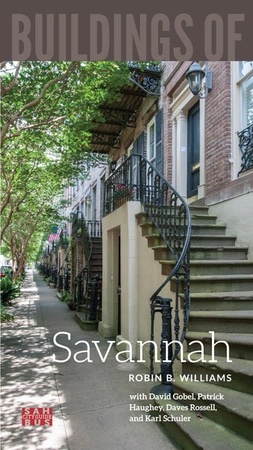
The two Central of Georgia railroad viaducts that cross W. Boundary Street near Louisville Road were designed by Schwaab and constructed of Savannah Grey brick. The southern, Main Line Viaduct, with access to the passenger depot, cotton yard, and repair shops, was completed in 1853 and employs semielliptical arches. Small arched openings between the spandrels provide drainage in times of flooding. The northern, Dooley Yard Viaduct, accessing the up-freight and down-freight warehouses, was completed in 1861 and employs wider segmental arches. The westernmost arch of both viaducts spans the Savannah-Ogeechee Canal. The infill structure from the 1960s that occupies one of the arches of the Dooley Yard Viaduct, originally a construction materials business and then Olde Arch Antiques, was acquired by SCAD in 2002.














